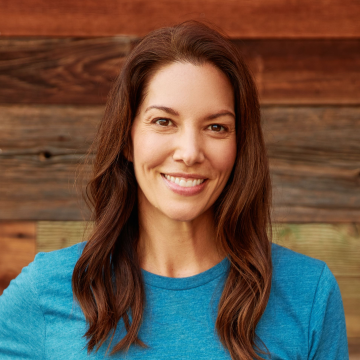If you choose to do something for someone else without being asked to do it, you made the choice to do it, so you don’t get to demand the response that you want from the other person. But you can feel more appreciated without demanding appreciation from others.
Need advice about something? Ask us here: https://forcesofequal.com/advice/
Transcript
Pam: [00:06] You’re listening to Not Bad Advice, where our goal is to offer perspective that helps you improve one aspect of your life at a time.
[00:13] I’m Pamela Lund.
CK: [00:20] And I’m CK Chung.
Pam: [00:22] And we hope that after listening you’ll think, “hey, that’s not bad advice!”
[00:26] Think about how often you feel unappreciated – like what you do for others goes unnoticed or like they just expect you to do what you do for them.
[00:48] Do you feel like that very often, CK, or have you in the past?
CK: [00:52] Yeah, of course. Hasn’t everybody? I feel…?
Pam: [00:58] Well, I used to feel unappreciated a lot, both at work and in our relationship. And don’t worry, I’m not surprising this on CK. It’s not news to him. We’ve had a lot of open and honest conversations about what each of us needs and feels. So this isn’t going to be surprised couples therapy…
CK: [01:16] Good.
Pam: [01:16] But the need to feel appreciated was, and is, something that is very present in my life.
[01:25] And I think that’s pretty common, like CK said. Most people like to feel like what they’re doing is valued by others. It feels good to be thanked or recognized in some way.
[01:37] It can become a problem, though, when you do things because you want to be appreciated for doing them. And then when you don’t get that response that you want, you get upset.
[01:48] You know, maybe you go out of your way at work to prepare a report that no one asked for, but that you know will be valuable. And then when you present it, the other people don’t see the value, so you get upset.
[02:00] Or maybe you do the laundry for you and your significant other every weekend, and they never say thank you. And it sucks because you feel like you’re constantly giving, giving, giving… and people just keep taking without appreciating all that you do for them.
[02:18] I know all too well how it feels. But I’ve actually been thinking about this because we just watched an episode of Cobra, Kai, the karate kid update show on Netflix, in which Eli, aka Hawk, gets a tattoo of his girlfriend’s name. And then she breaks up with him, and he gets mad and he says, “but this tattoo means forever.”
[02:40] And she says, “I never asked you to do that.”
[02:44] And that story fits in perfectly for this episode, because what I’ve learned is that if you choose to do something for someone else without being asked to do it, you made the choice to do it. So you don’t get to demand the response that you want from the other person. Does that make sense?
CK: [03:03] Yeah, absolutely.
Pam: [03:04] So talking about it as one thing – it makes sense while we’re discussing it – but practicing it, like living it, is a whole other thing because we want to help other people and we want to feel appreciated. That’s natural. But you have to remember that you can’t demand appreciation.
[03:21] Even when it seems so clear to you that the other person should be grateful for what you’re doing, you can’t be upset if you continue to choose to do what they aren’t appreciative of.
[03:34] First of all, you don’t know what their side of the interaction is. Maybe your partner secretly doesn’t like that you do their laundry or maybe the report that you put together at work was awesome but only to you.
[03:49] If you don’t communicate with the people you think you’re helping, you won’t know if you are actually helping them or if they even want you to do what you’re doing. Maybe they think you want to do whatever you’ve been doing. Who knows? If you don’t talk about it, you’re both just making assumptions about what the other person is thinking and feeling.
CK: [04:11] Do you want me to provide an example here?
Pam: [04:14] Sure.
CK: [04:15] So most people find washing dishes, a chore, right?
[04:22] And I’ve found it as a chore before, too. But these days, when I wash the dishes, I also listen to podcasts at the same time. And it’s one of the only times during the day that I get to listen to podcasts because otherwise I’m doing other things that require my brain to be focusing on something other than listening to a podcast.
[04:47] But it makes sense while I’m doing the dishes, and so it’s become a time where I can listen to podcasts that I want to listen to. But if you’re going to come in and try to do me a favor, by washing the dishes, which normally would be seen as a favor, but in the sense that you’re taking away my time to listen to a podcast that I want to tell, listen to is a different way to see how what you think you might be helping out with isn’t necessarily helping out in my perspective- or it may be helping out, but taking away something else.
Pam: [05:29] Okay. So I lied at the beginning. This is going to be a couples therapy, because this is a real life example that he’s giving right here, I think.
CK: [05:36] Well, it is, it is. But before you get too far down that path, it’s like, I’m fine with you doing the dishes. It is a nice favor to me and I can find some other time to listen to podcasts. I was just kind of coming up with a pertinent example that derive from something out of our real life.
Pam: [05:57] Well, so to be clear, I’m not looking for appreciation when I’m doing the dishes. It’s more, that it’s easier for me if I’m already rinsing them after dinner, to just wash them and get them out of the way. So I’m not doing it as a favor to you actually. Um, but if you don’t want me to do it by all means, I
CK: [06:17] yeah, No, I mean, interestingly enough, we’re very unconventional. So it seems like we’re on the same page in terms of how we’re helping each other out.
Pam: [06:29] That’s pretty funny.
[06:32] Well, along those same lines, there’s also the possibility that. If you’re so busy doing all these things that no one asked you to do for them, you may not be doing the things that they actually would appreciate.
[06:44] So in that example, you know, if I think that I’m doing you a favor by doing the dishes, so you don’t have to do them, but you actually don’t want me to do the dishes because you like doing them. And then maybe I could be spending that time doing something that you actually would appreciate.
CK: [06:57] Right.
Pam: [06:58] So the first step to feeling more appreciated, which will come as no surprise to regular listeners, is awareness. You need to become aware of your own actions and how they’re creating situations in which you feel unappreciated.
[07:14] Then, you have to take responsibility for your actions and how you feel about the outcomes. So rather than demanding to be appreciated for what you’re doing, ask the other person if they even want you to do those things.
[07:27] If they do, then you can have a conversation about how you feel and appreciated. So they know that if they want you to continue helping them, they need to express gratitude.
[07:37] And if they still don’t, then you get to choose. If you keep helping them. And this awareness and responsibility process starts all over.
[07:47] You are in charge of what you choose to do, but not how other people respond. You can control whether you continue to do things for people who are unappreciative or not.
[07:57] And if you stop doing what you’re doing, they’ll find out real quick how valuable it was to them and will start appreciating you doing it.
[08:05] Okay, now the other side of this is a different kind of awareness. Often, when we really want to feel a certain way, we become acutely aware of how often we don’t feel that way. And this actually happens with anything you want. It doesn’t have to be a feeling.
[08:19] It’s sort of counterintuitive, but let’s say you want a new car. You won’t notice all of the old cars on the road, you’ll start noticing a lot of new cars on the road around you. And it will feel like everyone has a new car, but you.
[08:33] You might even see more of the exact car that you want to buy. You’ll get more and more focused on all of those new cars and become less appreciative of your current car. Your car will look older and junkier the more you think about the new car you want so badly. You may even start treating your current car worse because it’s not what you want.
[08:54] The same thing happens when you want to feel a certain way. So, if feeling appreciated is really important to you, you will actually notice all of the,times that you don’t feel appreciated.
[09:05] When you do get recognition, you will ignore it if it’s not from the person you want it from or for the things you want it for. And see other people getting accolades and feel jealous or resentful.
[09:16] In your quest to feel appreciated, you will actually feel less and less appreciated because you’re so focused on what you’re not getting.
[09:25] I feel like there’s a cognitive bias here, CK, can you think of what it might be called?
CK: [09:31] It sounds like negativity bias.
Pam: [09:33] Okay, can you explain that a little bit?
CK: [09:35] Basically. It’s our tendency to see the negatives of every situation or perceive the negatives as greater than the positives of every situation.
[09:51] Pam: Okay. So negativity bias. We are more focused on and give more weight to the negative things or the things that we don’t want, than the positive things or the things we do want.
CK: [10:00] Exactly.
Pam: [10:01] Okay, that makes sense.
[10:04] So in order to combat this totally natural tendency, this negativity bias that we all have, you have to develop an awareness of practice around when you do feel the way you want to feel.
[10:15] You have to really focus on the appreciation you get – every thank you, every bit of positive feedback, all of it – journal it, tell a friend about it, tweet it. Whatever works for you, but really celebrate it.
[10:29] Take the time to physically feel the appreciation so it stays with you for awhile. You can keep an appreciation file for days when you aren’t feeling appreciated. Look back through thank you notes or emails that you’ve saved. Look at journal entries that you made about feeling appreciated. Any reminders that take you back to how you felt when you got that appreciation.
[10:51] And one final tip is to express your appreciation to other people. I know this also sounds counterintuitive, but when you give other people what you’re seeking, it helps you feel the positive effects too.
[11:04] And when you act the way you want to be treated, you are an example for others to follow, which makes it more likely that they will reciprocate.
[11:13] The Oracle cards representing today’s message are the dusk and dawn cards from the Nocturna Oracle deck. These cards represent duality and how there are always two sides to everything. Dusk is the end of day, but the beginning of night. And Dawn is the end of night, but the beginning of day. They remind us that you always have a choice, even when you think there’s only one option, the opposite exists.
[12:19] Everything in life is in constant motion, a cycle from one end of the spectrum to the other. And your awareness of the unavoidable duality present in everything will help you see the other side of what you’re experiencing now.
[12:38] If you found yourself thinking, “hey, that’s not bad advice, while listening today, giving us a good rating or review wherever you get your podcasts is a quick and easy way to show your support.
[12:48] You can get in touch with us on Twitter, where I’m @Pamela_Lund and CK is @cKdisco.
[12:55] If there’s something you need advice about, visit ForcesOfEqual.com/Advice to send us your question, and we may feature it on the show.






